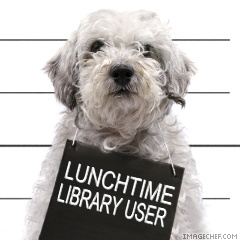Not your grandma's librarian
 Thursday, February 14, 2008 at 07:47AM
Thursday, February 14, 2008 at 07:47AM 
Not your grandma's librarian - Scholastic Administrator
Hell, it's not your older brother's librarian! - The Blue Skunk
Very heartening to see the article "Meet Your New School Library Media Specialist" in the February issue of Scholastic Administrator magazine. AASL President Sara Kelly Johns and ISTE CEO Don Knezek (whose librarian wife, Jana, seems to have trained him well) are quoted extensively.
The article included questions from South Carolina's ADEPT professional development system that administrators can use when interviewing LMS applicants. Worth a look.
Nothing revolutionary here for those of us involved on a daily basis with professionally current library media specialists, but it's great to see this in a publication aimed at administrators.
I've been following Justin Medved and Dennis Harter posts over on Dangerously Irrelevant this week (Part 1, 2, 3, 4). Justin and Dennis are tech integration specialists (as I understand it) at the International School of Bangkok. It is really fun to watch techs see The Light on the Road to Damascus - that the most powerful use of technology in schools is in helping make students information literate. They write:
Over the school year we ... came up five essential questions that we felt addressed the core elements of a comprehensive technology and learning curriculum - one focused on the thinking that was needed for the 21st century learner, rather than the technology.
- How do you know information is true?
- How do you communicate effectively?
- What does it mean to be a global citizen?
- How do I learn best?
- How can we be safe?
Something we librarians seemed to have understood for at least the past decade. Mike Eisenberg and I wrote the first version of this in 1996! I am not saying this to in any way diminish the great work of the team at ISB. We all have to experience our own epiphanies - nobody can give one. I like the simplicity of your approach.
But my question for Justin and Dennis is "where has your school's librarian been in your lives that you are just now figuring this out?!" And if s/he's been telling you about this stuff, why have you not been listening?









